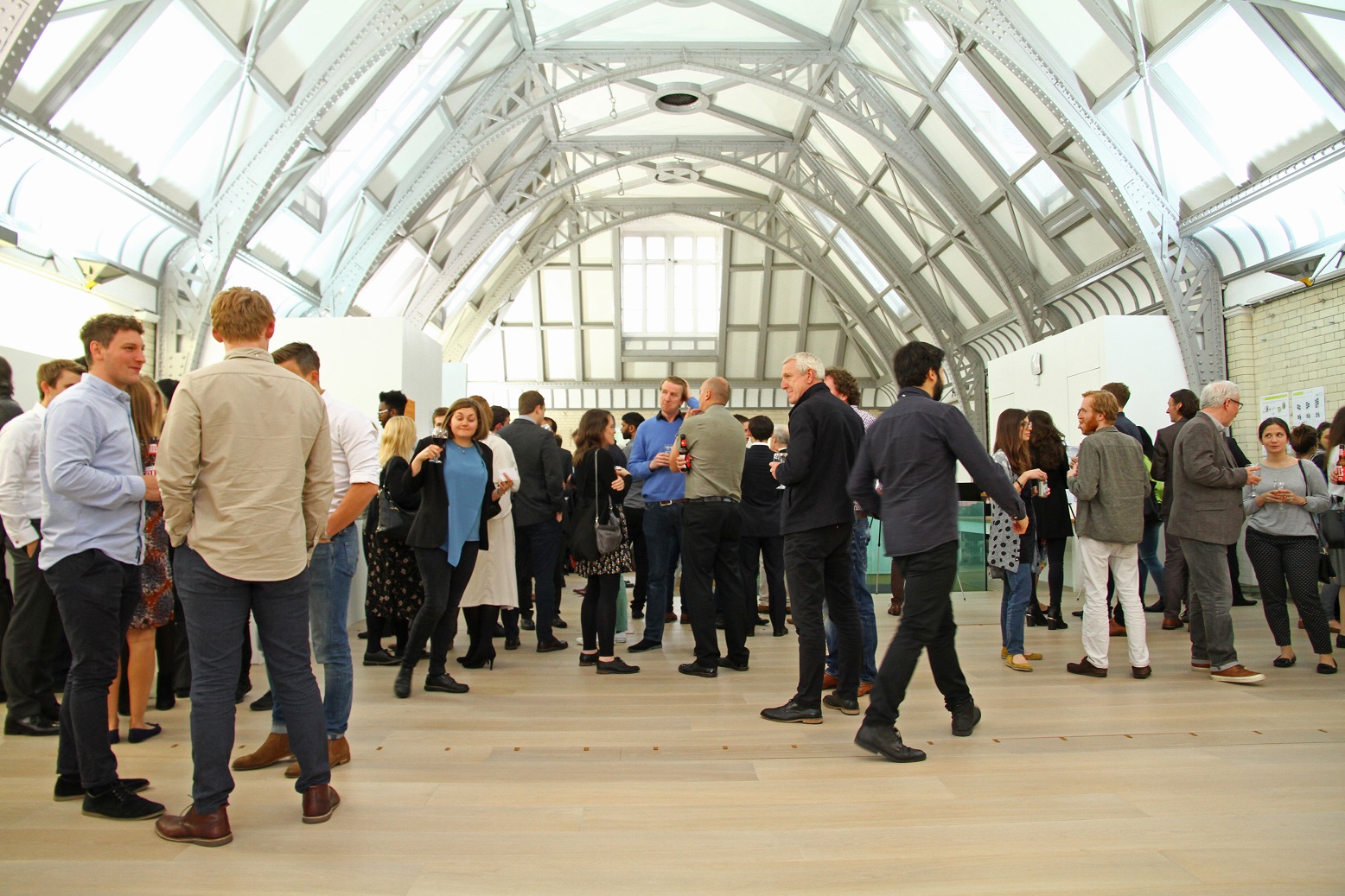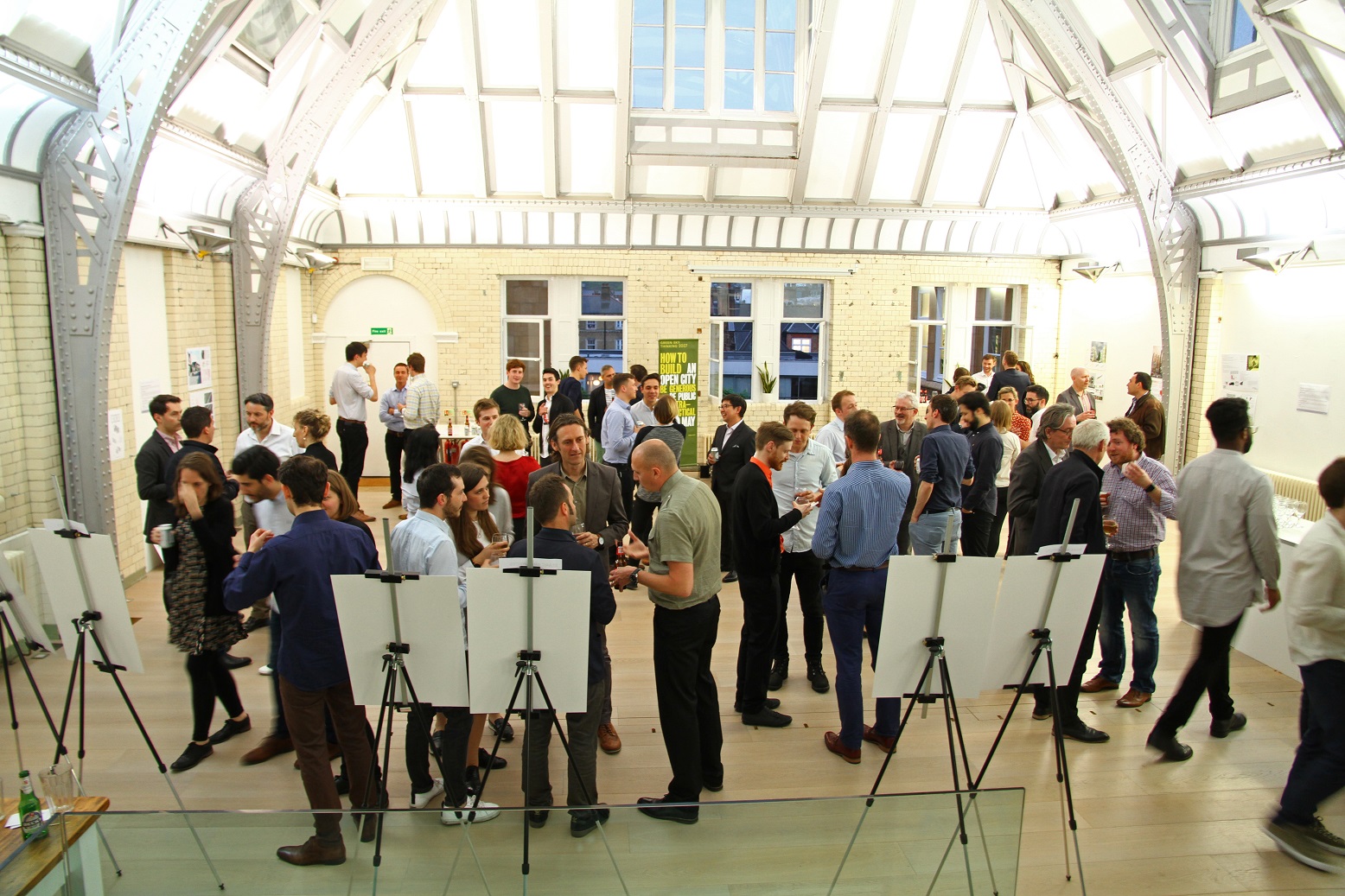Design Brief
London is a thriving city and as the capital grows, the demands placed on business to get their goods and services to their customers naturally increases. However, space is at a premium and balancing the demands for housing, green space and public realm often conflicts with the functional needs of a city.
With the growth of e-commerce, retailers and their delivery partners need to reconfigure their supply chain, and new residential and commercial development will increase the need for rapid delivery for the ‘last mile’ service. This only heightens the importance of siting commercial development ‘amongst’ or ‘near to’ urban concentrations of populations and businesses. The last mile service is important for increasing efficiencies in London’s supply chain, and it also has a key role in managing the number of vehicles on London’s roads and the air quality impacts associated with these.
This year’s Green Sky Thinking Design Competition poses the question:
What is the future of last-mile logistics?
Small scale distribution centres, consolidation centres and customer pick up points are a vital component in the final stage of delivery, integration of these facilities within the fabric of the built environment is one the key elements to balancing the multitude of demands upon physical space in a city. The potential for multi-function buildings, flexible and adaptable spaces, blue and green infrastructure, alternative approaches to distribution, job creation, and urban regeneration is significant across all of London’s boroughs.
XCO2 and SEGRO, in conjunction with Open House and the Greater London Authority, invite you to submit your concept ideas for the next generation of city-centre logistics with a focus upon the socio-economic value of the concepts developed to deliver functional spaces that offer employment and community for the people who live in them.
- How could last-mile distribution be better integrated into the built environment?
- What new ideas and approaches could be taken for storage, distribution and delivery?
- How does the concept balance the increasing demands for land and space within a growing city?
- What’s the typical day-to-day experience for residents or the start-to-finish journey for the delivery?
- How does the concept add value to the local community and enhance the lives of the people who live and work there?
- What are the wider scale impacts for London?
Entry Requirements
We are seeking expressions of interest by Friday 20th April and final entries by Thursday 10th May.
If you would like to enter the competition please email Lindsey Malcolm (lindseym@xco2.com) by Friday 20th April.
For the exhibition, each team should produce two A3 posters – either hand drawn or computer-aided – with an accompanying description of your concept (up to 300 words). These should be emailed in PDF format to XCO2 by close of play Thursday 10 May. All the entries will be displayed in an exhibition hosted by XCO2 and SEGRO from 6-9pm on Thursday 17 May. During the event:
- Entrants will be given the opportunity to discuss their ideas with judges and guests.
- The winner and two highly commended entries will be selected by the judges and will receive a prize.
- There will be plenty of time for discussion, networking and Green Sky Drinking.
Judging Panel
- SEGRO: Neil Impiazi, Partnerships Director for Greater London
- XCO2: Tom Kordel, Director
- We Made That: Holly Lewis, Co-founding Partner
- and others from Open House, GLA and industry to be confirmed
Prizes
- 1st prize: £500 budget for dinner & drinks at Cub (http://www.lyancub.com/) where ingredients are grown on-site, and they look at how restaurants and bars can make more of a meaningful impact on the repercussions of food and drink.
- AND the chance to attend a meeting with ’Futures Group’ at SEGRO and present the winning idea;
- 2nd prize: £300 budget for dinner & drinks at Trawler Trash (http://www.trawler-trash.com/) who look to combat over-fishing by introducing alternative breeds – such as grey mullet, sprat, and coley – in lieu of the usual cod and haddock gracing the traditional fish and chip menu.
- 3rd prize: £200 budget for dinner & drinks at ‘London’s first fully sustainable pub’ The Long Arm in Shoreditch (http://longarmpub.co.uk/about/)
Context
This work will build upon SEGRO’s ‘Keep London Working‘ study and the GLA’s ‘Made in London’ work.
From 2010-2015 a total of 528 ha (or 7.1%) of London’s industrial land was released to non-industrial uses, such as housing. This is equivalent to 106 ha/year and is around three times greater than the GLA’s release target of 37 ha/year. Therefore, whilst the demands and pressures on industrial land and the ‘urban logistics’ sector are increasing, the stock of industrial land (particularly land close to business/consumer markets) is shrinking under pressure from alternative higher value uses such as housing.
A minimum of 6,105 businesses and 76,200 employees are classified as being in the logistics sector in London. This figure does not include the substantial numbers of employees and businesses who operate in a logistics environment but which are classified within another sector, such as retail. This would include the likes of Ocado, John Lewis, Amazon and ASOS who operate sophisticated supply chains to a range of customers. Jobs in the logistics sector are increasing, with a growth of 6,800 (9.8%) between 2011 and 2014. Salaries, £38,585 per annum on average, are above the national average for all sectors (£27,607), and the proportion of full-time positions (85.3%) is also higher than the London average (73.8%).
With the growth of e-commerce, retailers and their delivery partners need to reconfigure their supply chain, and new residential and commercial development will increase the need for rapid delivery for the ‘last mile’ service. Jobs in the logistics sector are increasing, with a growth of 6,800 (9.8%) between 2011 and 2014, a minimum of 6,105 businesses and 76,200 employees are now classified as being in the logistics sector in London. Salaries, £38,585 per annum on average, are above the national average for all sectors (£27,607), and the proportion of full-time positions (85.3%) is also higher than the London average (73.8%).



